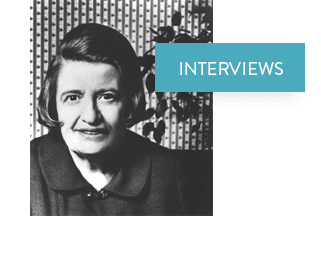Why are these podcasts free?
Many of you have written to ask why Berkeley makes these podcasts available for free. Although web and podcasting originally started as a way to enhance the learning experience of Berkeley students, the university believes that podcasting is a natural fit with its public-service mission. Under the provisions of the 1960 California Plan for Higher Education, Berkeley, its sister UCs, the Cal State system, and California’s community colleges are charged with the task of making some form of higher education available to everyone, regardless of their economic means. Public education comes in for a lot of justifiable criticism these days, but let’s remember the success stories too! I am extremely proud to be part of an initiative that has brought the experience of American higher education to listeners around the world.
Postscript: These lectures were originally hosted by UC Berkeley on iTunesU, but are now available on iTunes by searching for Jennifer Burns.
How can I use these lectures?
You may use these lectures in any non-profit way you wish. Teachers occasionally ask if they may use these lectures. There is no need to contact me if you are using the lectures to inform and enrich your own teaching, but if you plan to play lectures in your classes I appreciate being informed beforehand and given appropriate credit.
Fellow scholars should be aware these lectures have not been edited or revised and thus should not be equated with, or cited as, peer reviewed, published work.
Are these lectures different from the ones you deliver as a professor at Stanford?
Yes, because the course topics are different and I frequently revise and update my lectures. Also, Stanford is on the quarter system, rather than semesters. This means that my survey course runs from about 1900 to the present, rather than starting after the Civil War. I’m also constantly rewriting lectures to make them more effective, and to take into account new historical interpretations. For instance, there is a lot of literature coming out about the Republican presidential realignment of the late 1960s, with scholars questioning the timing, the sources, and the overall meaning of “realignment” in the latter part of the twentieth century. In light of this new work, I may choose to reshape certain narratives to better reflect this emerging scholarly consensus.
How do you write lectures?
I stand on the shoulders of giants! Most lectures are a synthesis of the best historical writing on the topic; I usually read between 1-5 books as preparation for each lecture. In many cases I’ve also spent time reading relevant primary sources so I have a more immediate grasp of the material. I then choose specific facts and stories that integrate well with other lectures and together communicate the important themes of the course.
Aren’t you worried about people copying you?
Academic history is a collective enterprise, and I’ve learned so much from other scholars that it seems only fair to spread the knowledge in turn. Also, I think it’s pretty impossible to copy someone else’s lecture and deliver it well. I’ve certainly used lectures given by my mentors as a scaffolding for my own presentations, but I always end up making huge changes to reflect my own style and understanding. If my podcasts make it easier for others to teach American history, I think we’re all better off in the long run.
I noticed a mistake in one of your lectures!
You may have indeed! Check out the
"errata" file for some of the most commonly noted errors. And keep in mind these lectures are not edited, revised, or even rehearsed – what you are hearing is the raw version delivered in real-time, for the first time.




